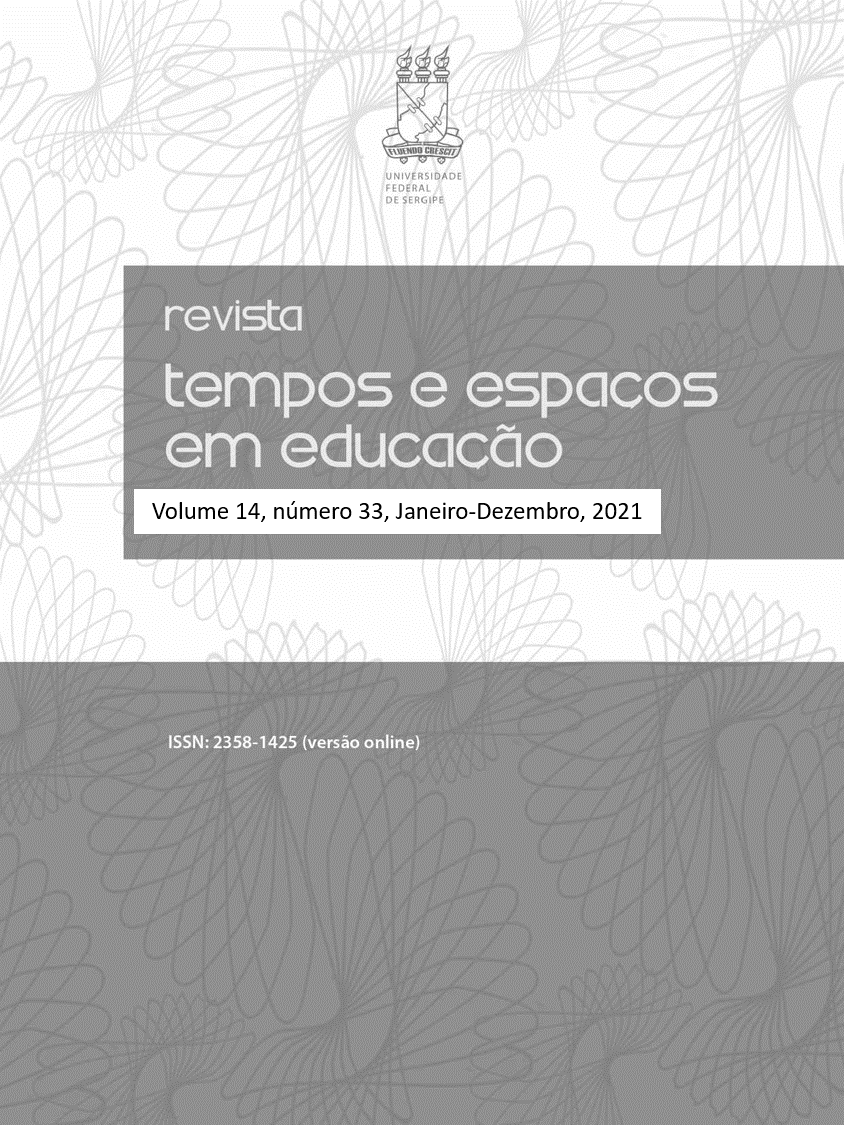Pedagogical aspects of the formation of professional competence among students of physical culture and sports
DOI:
https://doi.org/10.20952/revtee.v14i33.16602Keywords:
Pedagogy, Professional competence, students, educational process, physical cultureAbstract
The main purporse is to determine the main aspects of professional competence among students of physical culture and sports. The pedagogical practice of future physical culture teachers is an integrating and core component of the personal and professional formation of a future specialist, which provides for the formation of his professional competence through mastering various types of activity, leads to professional self-improvement, student self-knowledge in various professional roles in the real conditions of a general education school. Among the main tasks facing the system of higher pedagogical education, an important place is occupied by the task of training a competence-based specialist of a wide profile, further strengthening of fundamental education and bringing it closer to research and practical professional activity, therefore, the goal of training should provide for an optimal combination of theoretical knowledge and creative abilities of future teachers, which would allow them, after graduating from an educational institution, to independently raise the level of their education and professional training, to find fundamentally new solutions to the problems of science and practice. The study was carried out using the following theoretical methods: systems analysis and synthesis, induction and deduction, comparison, classification, generalization and systematization, idealization and abstraction. As a result of the study, the main aspects of professional competence among students of physical culture and sports were determined
Downloads
References
Aleksіeіenko-Lemovska, L. (2019). Components of professional competence of educators of pre-school educational institutions: pedagogical excellence, pedagogical creativity. Pedagogical sciences: reality and perspectives, 69, 5-9. https://doi.org/10.31392/2311-5491/2019-69.1
Azimi, M., Rafsanjani, S. A. R. H., & Torkaman, M. (2020). The effect of education and sporting experience of iranian premier league football players on their awareness of sports law. Revista Tempos e Espaços em Educação, 13(32), 1-15. https://doi.org/10.20952/revtee.v13i32.14924
Byrko, N., Tolchieva, H., Babiak, O., Zamsha, A., Fedorenko, O., & Adamiuk, N. (2021). Training of teachers for the implementation of universal design in educational activities. Laplage in Journal, 7(Extra-D), 37-149. https://doi.org/10.24115/S2446-622020217Extra-D1079
Fullagar, S. (2019). A physical cultural studies perspective on physical (in)activity and health inequalities: the biopolitics of body practices and embodied movement. Revista Tempos e Espaços em Educação, 12(28), 63-76. https://doi.org/10.20952/revtee.v12i28.10161
Gonçalves Júnior, E. R., Siqueira, R. C. A., & Gonçalves, E. R. (2021). Diffusion of environmental education in public education: evidence of a bibliometric analysis. Laplage in Journal, 7(1), 31-41. https://doi.org/10.24115/S2446-6220202171141
Liannoi, M., Dyshko, O., Melnyk, S., Chckailo, M., Hrybinichenko, A., Liakh, M., & Illiashenko, A. (2021). Modern sports as an effective means of developing motor skills and the formation of applied skills in higher education. Laplage in Journal, 7(Extra-B), 568-574. https://doi.org/10.24115/S2446-622020217Extra-B972
Melnykov, A. (2020) Factors that influence change in cadets’ physical preparation during the first half of study at the military academy. Journal of Physical Education and Sport, 18(2), 781–786
Nakhodkin, V., Khvatskaya, E., Ilina, N., Andreev, V., & Andreev, V. (2021). Research on the state of young hockey players’ pre-competitive psychological fitness. Laplage in Journal, 7(3), 283-291. https://doi.org/10.24115/S2446-62202021731296
Rusanivskyi, S. V., Fedchenko, O. S., Kruk, O. M., Oleksiychyk, S. A., Lysyk, R. V., Shtoma, V. D., & Yuriev, S. O. (2020) Health status of instructional staff of highereducation institutions with special trainingconditions. Wiadomości Lekarskie, 74(1), 122-127
Tsybanyuk, O., Zavgorodnia, T. ., Hnes, N. ., Doronina, T. ., Strazhnikova, I. ., & Dariichuk, S. . (2021). The role of public associations in the implementation of out-of-school education. Laplage in Journal, 7(3C), 613-618. https://doi.org/10.24115/S2446-6220202173C1668
Zdanevych, L. V., Kharkivska, A. A., Popovych, O. M., Bobyrieva, O. S., & Kovrei, D. Y. (2020). Reflection of the personality-oriented approach by the subjects of its implementation in Eastern Europe. Revista Tempos e Espaços em Educação, 13(32), 1-20. https://doi.org/10.20952/revtee.v13i32.14967
Zlatea, S., & Cucui, G. (2016). Motivation and performance in higher education. Procedia -Social and Behavioral Sciences, 180, 468-476.
Published
How to Cite
Issue
Section
License
À Revista Tempos e Espaços em Educação ficam reservados os direitos autorais pertinentes a todos os artigos nela publicados. A Revista Tempos e Espaços em Educação utiliza a licença https://creativecommons.org/licenses/by/4.0/ (CC BY), que permite o compartilhamento do artigo com o reconhecimento da autoria.



